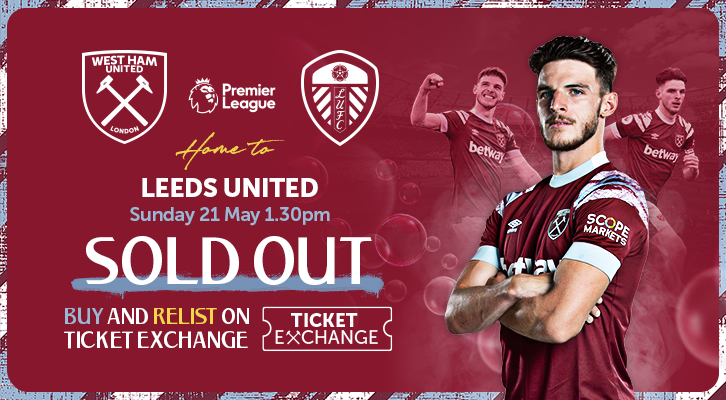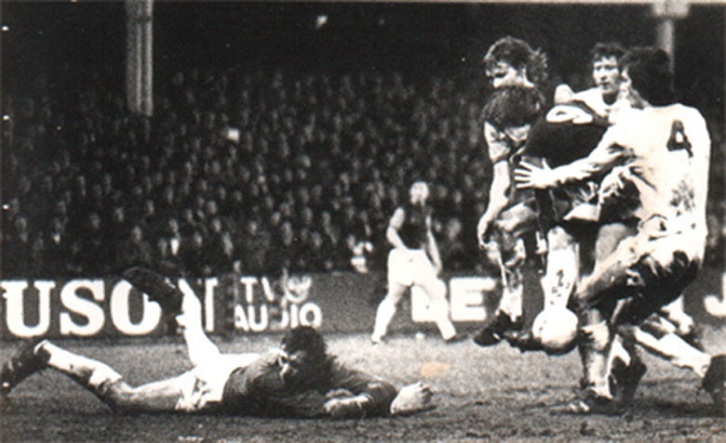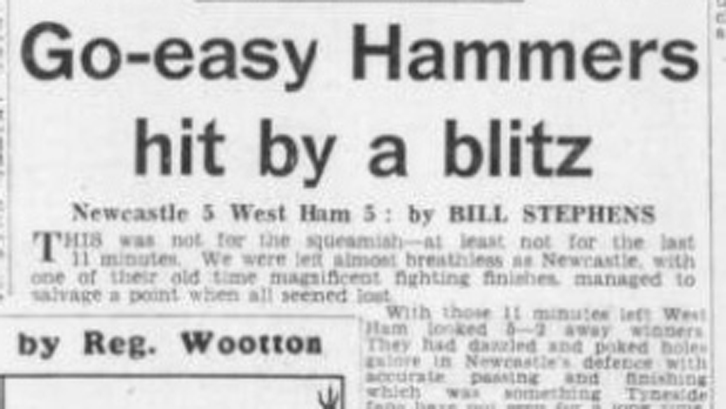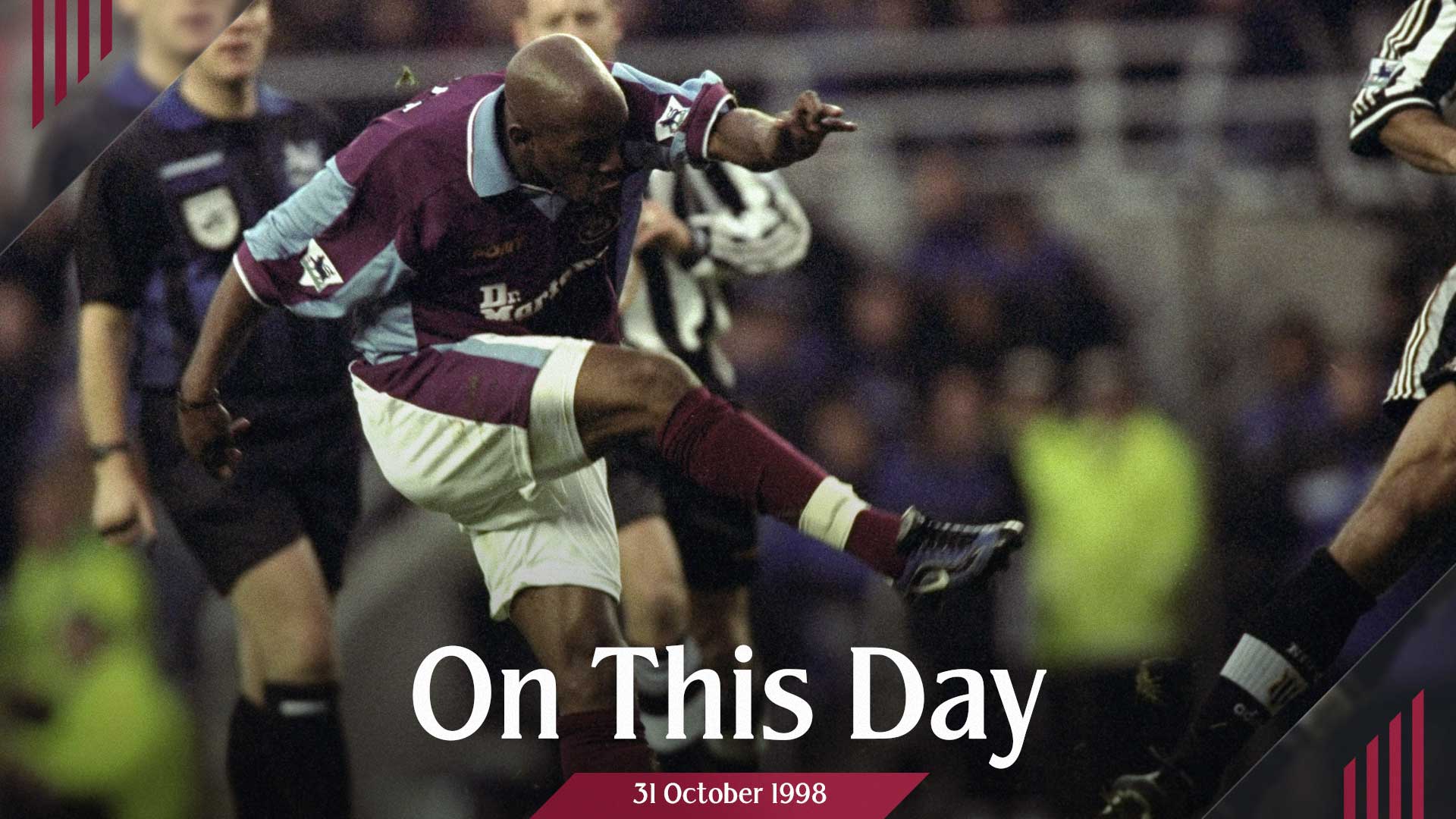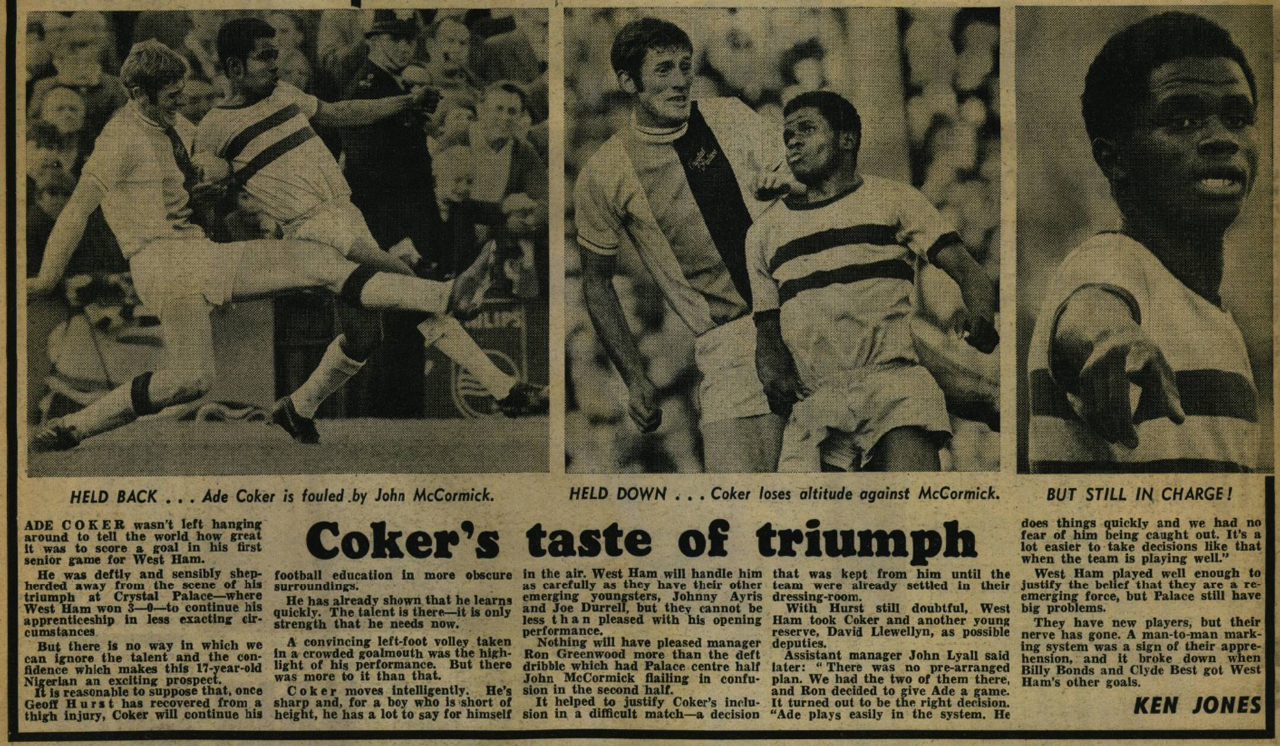This is West Ham United’s first-ever meeting with AZ Alkmaar. However, the Hammers have a number of historic links with the Netherlands...
Early Tours
West Ham United visited the Netherlands for the first time nearly a century ago, in May 1925, for a post-season tour.
Syd King’s squad, which included Vic Watson, Ted Hufton, Tommy Yews, Jimmy Ruffell and Billy Moore and was led by director Will Cearns, travelled by ferry from Felixstowe to Vlissingen and onto Amsterdam by train.
A char-a-banc took the Irons to face Dutch champions Ajax the following evening, when Watson’s two goals secured a 2-0 win in front of 10,000 supporters.
After a canal cruise and a day of sightseeing, the squad travelled to Arnhem, where hosts Vitesse prevailed 3-2.
Interestingly, both Dutch clubs employed English coaches who had faced West Ham as players in the Southern League – Ajax’s Jack Reynolds for Gillingham and Vitesse’s Bob Jefferson for Swindon.
The squad then visited the cheesemaking town of Edam, a diamond factory and Amsterdam’s museums, a flower show and the town of Haarlem before heading for Rotterdam. There, the Irons took on a representative team named Swallows and drew 1-1, with Watson again on target.
The tour was not over, with a visit to the Royal Palace and theatre organised before the players and staff joined forces with fellow tourists Derby County to take on their Dutch counterparts at cricket, but the game was rained-off!
West Ham and Derby then both travelled back to Amsterdam to face one another in a rematch of their 1923 FA Cup semi-final, which the Londoners had won 5-2. The Rams gained their revenge, winning 3-2, with Watson and Ruffell on target for the Hammers.
The following day, the Hammers headed home at the end of an action-packed fortnight.
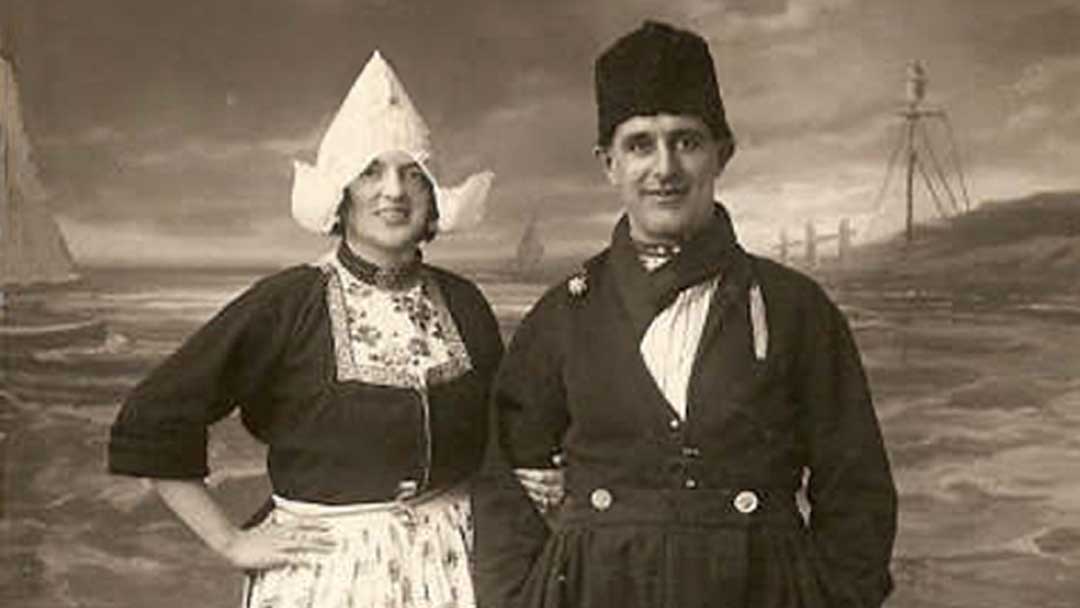
Having enjoyed their first foray to the Netherlands, Cearns and King led another post-season tour to the country in May 1929.
A trip to Italy had been cancelled at late notice, so the Hammers hastily arranged a return to Holland, with the group travelling by train from Liverpool Street, then boat across to Vlissingen and onto Amsterdam by train, as they had four years previously.
As they had done in 1925, the Hammers kicked-off against Ajax, this time running out 6-0 winners, with inside right George Robson scoring a hat-trick.
Robson was on target again, and Jim Barrett scored two goals in a 3-3 draw at Enschede in the tour’s second game, before the squad returned to Amsterdam for a sightseeing tour.
Swallows provided the opposition for the tour’s third game, which West Ham won 3-2 thanks to two Tommy Yews goals and one from Vivian Gibbins.
Despite being lectured on the ills of professionalism by their hosts, the Irons enjoyed their trip, which ended with a 2-1 defeat by ADO Den Haag in The Hague. It was then all aboard the 10pm boat from Hook of Holland to Harwich!
The third of the early tours took place in May 1937. Again, the squad travelled by train and boat, before arriving at the seaside resort of Scheveningen, nicknamed the ‘Brighton of Holland’.
However, the difference from the two previous tours was that the Hammers would take on a Dutch FA select XI four times.
A 12,000 crowd saw Tommy Green score in a 1-1 draw in Arnhem, before Jackie Morton’s brace secured a 3-2 victory in Leeuwarden two days later.
After a visit to a flower show, the Irons listened to the Coronation of HM King George VI and Queen Elizabeth on the radio at their hotel (very topical!) before travelling to Utrecht for their third fixture, this time played under floodlights. Green scored, but the Dutch select team won 3-1.
The fourth and final fixture was played in Eindhoven, where Sam Small – who would score the Hammers’ Football League War Cup final winner at Wembley three years later – netted twice in a 4-1 victory.
The tour ended with the coach driver taking a shortcut to Hook of Holland and having to explain his driving to the local police, before the squad were allowed to board the ferry back to Harwich and home!
An Historic Comeback
After hosting friendlies with Feyenoord (0-0) and Sparta Rotterdam (5-0) at the Boleyn Ground and travelling to face Fortuna Sittard (3-2) in the 1950s, West Ham United’s next Dutch challenge came in the face of ADO Den Haag.
It was March 1976, the occasion was the European Cup Winners’ Cup quarter-finals and the English FA Cup holders were drawn to face the Dutch Cup winners over two legs…
“There have been many great occasions in the 72 years that soccer has been played on the Boleyn Ground, and it is only expected that the glories of some have faded in the memory as the years have passed.
“In that context, it is not easy for the ‘old-timers’ among us to decide which really were the greatest and which had less to commend them than others.
“However, our match against Den Haag was a worthy contender to be placed among the brightest memories, and is still so fresh in our minds to be strongly savoured – not only for the older but for the younger members of our following.”
The programme editorial entitled ‘Onward in Europe…’ perfectly summed up what was a truly dramatic and, for those in attendance, unforgettable night of action at the Boleyn Ground on 17 March 1976.
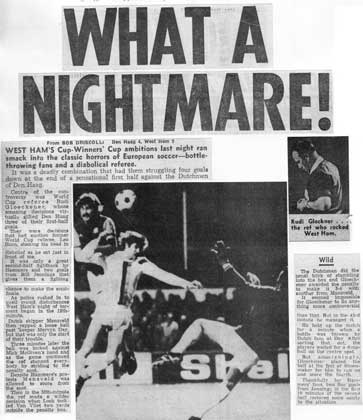 To put matters into context, West Ham had been 4-0 down at half-time in the first leg, played at the Zuiderpark in Holland’s capital two weeks earlier – yes, four goals down!
To put matters into context, West Ham had been 4-0 down at half-time in the first leg, played at the Zuiderpark in Holland’s capital two weeks earlier – yes, four goals down!
Dutch international Aad Mansveld had scored a 26-minute hat-trick, including two controversial penalties awarded for handballs by Kevin Lock and Mick McGiven, before Lex Schoenmaker added a fourth just before the break.
With manager John Lyall absent with the flu and Ron Greenwood standing in, and Trevor Brooking unavailable due to injury, West Ham’s European conquest looked all but over. However, two second-half goals from Billy Jennings – both from Graham Paddon crosses – breathed new life into their challenge.
The two teams headed back to east London for a second meeting, with Lyall fit to resume his duties in the dugout and a 29,829-strong crowd packed into the Boleyn Ground.
The equation was as follows – West Ham needed to win by two clear goals to go through on away goals, so long as the second leg finished 2-0 or 3-1 in their favour. A 4-2 win would mean extra-time, while any one-goal victory or draw would mean elimination.
While the task was simple to explain, it was far harder to achieve against a Den Haag side managed by the legendary Serb Vujadin Boskov, who would go on to win the same competition with Italian side Sampdoria 14 years later.
It took 28 minutes for Lyall’s men to break the deadlock when Alan Taylor poked through the mud after Brooking’s initial shot had been saved by goalkeeper Tom Thie.
Five minutes later and West Ham were level. Brooking was again the catalyst, rolling the ball to his left for full-back Frank Lampard – who had earlier been ordered to pull up his trademark rolled-down socks by Hungarian referee Karoly Palotai – to thump in from 30 yards.
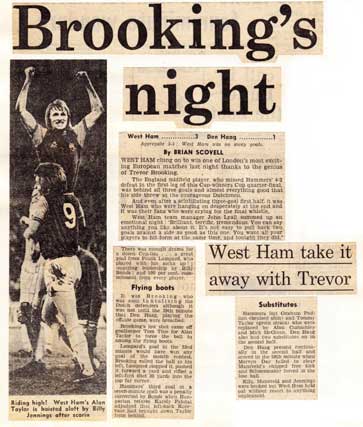 With noise levels inside the Boleyn Ground growing with every passing second, Taylor was fouled byf left-back Joop Korevaar, and Billy Bonds converted from the penalty spot to make it 3-0 on the night and, amazingly, 5-4 to West Ham on aggregate!
With noise levels inside the Boleyn Ground growing with every passing second, Taylor was fouled byf left-back Joop Korevaar, and Billy Bonds converted from the penalty spot to make it 3-0 on the night and, amazingly, 5-4 to West Ham on aggregate!
Den Haag then fought back themselves and levelled through Schoenmaker with half-an-hour to play. With just a few minutes to go, the Dutch had the ball in the net for a second time, only for the ‘goal’ to be ruled out for offside.
The final whistle was greeted with a mixture of joy and relief by the home fans, and manager Lyall.
“I’m proud of all my players,” he said. “I could not have asked more from them. Those Dutchmen were certainly tough boys, but my lads steadied themselves superbly after they equalised [on aggregate].
“It is brilliant, terrific, tremendous. You can say anything you like about it! It’s not easy to pull back two goals against a side as good as this one. You want all your players to hit form at the same time, and tonight they did.”
West Ham’s titanic tie with Den Haag led to a relationship between the two clubs which spurned three friendly matches in the Netherlands, two in 1981, one in 1982 and the last in 1986.
The first and last both ended 1-1, while the Hammers prevailed in the second (1-0) and third (2-0), with all four games being played at the Zuiderparkstadion.
The Hammers’ final trip to Zuiderpark was held to mark Den Haag’s 100th anniversary in August 2005, when a teenage Mark Noble was in the starting XI and Bobby Zamora scored the visitors’ goal in a 1-1 draw.
Intertoto Cup
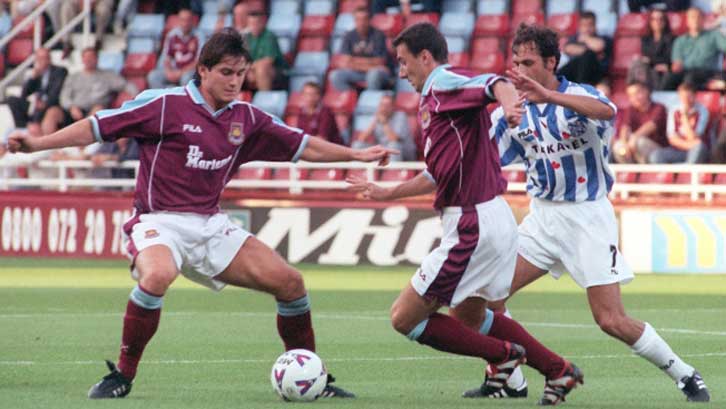
West Ham United’s most recent meeting with Dutch opposition was in the UEFA Intertoto Cup in the summer of 1999.
Having finished fifth in the Premier League, Harry Redknapp’s side missed out on a place in the UEFA Cup, but could still qualify by taking part in this now discontinued competition.
The Irons did just that by defeating Jokerit of Finland, Heerenveen of the Netherlands and Metz of France.
The semi-final tie against Heerenveen was played over two legs at the end of July and start of August, with goals from Frank Lampard and Paulo Wanchope securing two 1-0 victories and a 2-0 aggregate success.
Marco Boogers
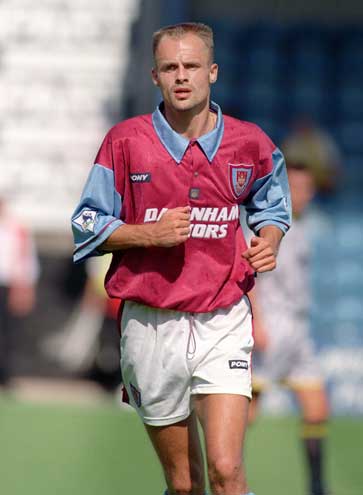 He may have made just four substitute appearances for West Ham United, but no Hammers fan will ever forget Marco Boogers.
He may have made just four substitute appearances for West Ham United, but no Hammers fan will ever forget Marco Boogers.
The Dutch striker arrived from Sparta Rotterdam for a fee of around £1m in July 1995. Boogers made his debut in the 2-1 home Premier League defeat by Leeds United on 19 August, but it was his brief appearance at Old Trafford four days later that would live far longer in the memory.
The Dordrecht-born player was sent on as a substitute by manager Harry Redknapp, only to be sent off almost immediately for a foul on Manchester United defender Gary Neville.
Boogers would not play for the Hammers again until 4 November, when he appeared as a substitute in the 4-1 home defeat by Aston Villa. The striker's final game in a claret and blue shirt came on 2 December at Blackburn Rovers. Boogers was loaned to FC Groningen in his homeland.
The striker enjoyed a fruitful return to the Netherlands, scoring 71 goals in 129 games for Dordrecht '90 before retiring in 2003.
The only other Dutchmen to play first-team football for the Hammers were striker Jeroen Boere in mid-1990s (turn to pages 76-79), and midfielder Ray Atteveld, who became our first player from the Netherlands when he played three times during a loan spell from Everton.
We also signed goalkeeper Raimond van de Gouw in 2002, but the former Vitesse and Manchester United man did not feature in a competitive fixture.
Bert van Marwijk
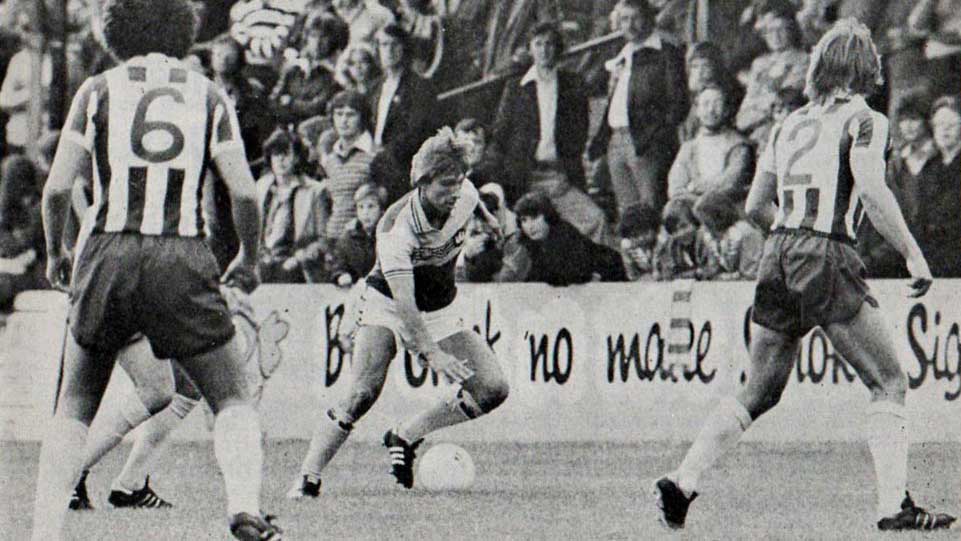
A Dutch Cup winner with AZ in 1978, Bert van Marwijk is better known for his managerial career than his playing days.
Now 70, the former goalscoring midfielder spent three seasons with the Alkmaar club, either side of longer spells with his hometown team Go Ahead Eagles of Deventer and MVV of Maastricht. In total, van Marwijk played 492 times, scoring 77 goals, without leaving the Netherlands.
The same could not be true of his coaching career, which has seen van Marwijk take on managerial roles at clubs in Holland and Germany and with the national teams of his homeland, Saudi Arabia, Australia and the United Arab Emirates.
Van Marwijk is best known for his spells in charge at Feyenoord, where he won the UEFA Cup in 2002, Borussia Dortmund, and of the Netherlands, whom he led to the 2010 FIFA World Cup final.
However, precious few football fans are aware that he also spent a very short time with West Ham United in his playing days!
On Monday 7 August 1978, John Lyall’s Irons played Colchester United at Layer Road in an evening pre-season friendly. Wearing the famous No6 shirt for the Hammers was van Marwijk. The Dutchman, 26 at the time, was over for a trial.
After three years with AZ, the one-cap Netherlands international was seeking a new club. The Colchester United friendly was his only appearance in Claret and Blue. The Newham Recorder reported that the Dutchman ‘displayed some neat touches, good positional sense and shrewd distribution but having not played since the Dutch season ended three months ago, was clearly well short of match fitness’.
West Ham manager Lyall wanted to see the Dutchman in further trials to help make a full assessment and decide whether or not he was worth a reported £100,000 transfer fee. Unfortunately, the former international could not be persuaded to stay and audition further and he subsequently joined Maastricht, where he stayed for eight seasons.
For the record, 2,720 supporters witnessed van Marwijk’s sole appearance for West Ham United, which ended in a 2-2 draw courtesy of two Trevor Brooking goals.
